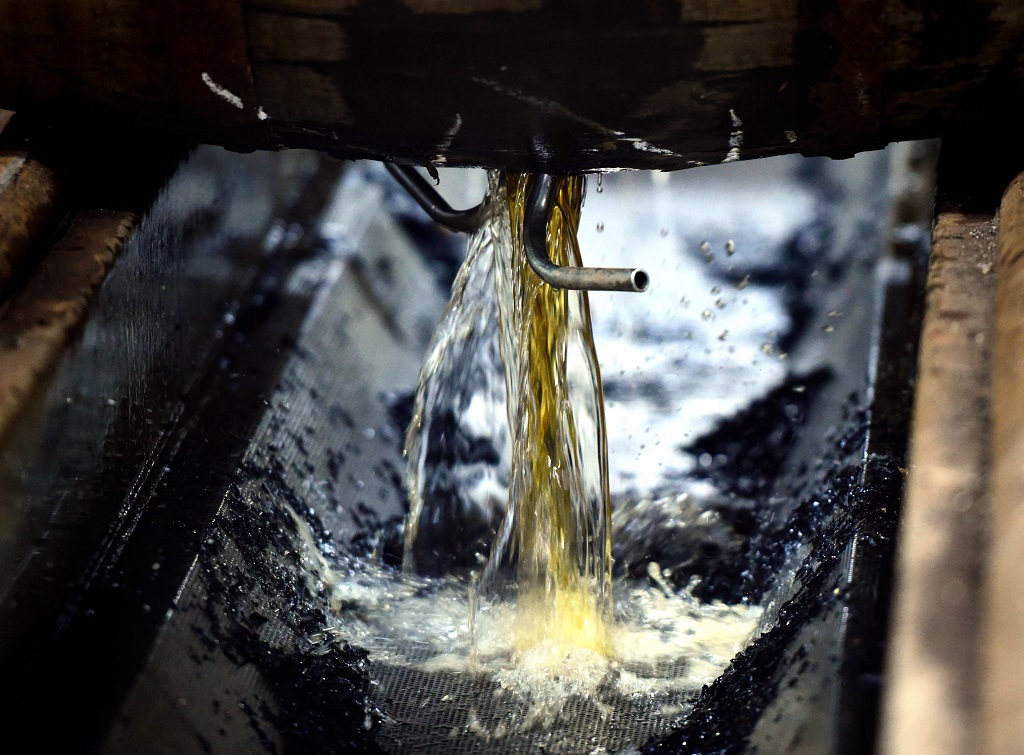
The distillery you’ve probably tried and didn’t know
Whisky fans around the world could enjoy a little taste of North British when they raise a blended dram to their lips.
Located in the heart of Scotland’s capital, The North British Distillery is an Edinburgh institution and a key part of the Scotch Whisky industry. It is nestled in the city’s west end between the iconic Murrayfield stadium and Tynecastle, where the city’s Heart of Midlothian Football Club has played since 1886.
The North British Distillery was established as a co-operative operation on this greenfield site, just a year before Tynecastle, on what was then the outskirts of Edinburgh.
In 1885, the distillery was built for the sum of £142,000 with the lease for the 10-acre site initially costing just £50 per year.
Behind the company were three blenders – Andrew Usher, William Sanderson and John Crabbie – who had a vision of producing good quality grain whisky at a fair price. The distillery became operational in September 1887, producing 3.6 million litres of alcohol in its first full year.
During the First World War, the distillery was used for munitions purposes, with the long-term plan of making acetone. The war ended before production could begin but it was 1920 before the distillery started making grain spirit again. The distillery again ceased production in 1939 following the start of the Second World War, this time due to lack of raw materials.
It would be 10 years before production restarted, taking until 1955 to fully recover. The North British Lunch was instigated to mark the end of the war relief effort, an annual gathering of executives from companies across the Scotch Whisky industry that continues to this day.
Now owned by Lothian Distillers, a holding company jointly operated by The Edrington Group and Diageo, North British grain whisky is a key component in many well-known blended brands and is enjoyed across the world.
Alan Kilpatrick, managing director of The North British Distillery Company, said: ‘I often get asked what blends our whisky is used in. We’re confident in saying that you would struggle to find a blend that doesn’t or hasn’t at some stage had some North British whisky in it.’

North British Distillery whisky features in most blends produced in Scotland (Photo: Paul Chappells)
The company now operates on two sites, with the majority of its maturation warehousing concentrated at Muirhall in West Lothian. Committed to its local communities, The North British Distillery supports Big Hearts Community Trust in Edinburgh and Team Jak in Muirhall, as well as providing animal feed to Gorgie Farm and running a STEM programme with Tynecastle High School.
In recent years, The North British Distillery has focused on continuous improvement, developing many initiatives to ensure the business remains not just compliant, but sustainable too. Waste heat generated in the distilling process is used to heat Tynecastle High School, and a boiler burner upgrade resulted in a significant reduction in emissions while also improving energy efficiency.
Alan added: ‘We are committed to ensuring our Scotch grain whisky is produced sustainably now and in the future. We are carrying out work to move towards a more circular economy and are continually reviewing our processes and researching ways that we can work in a more environmentally friendly way.’
Whilst it took just over 100 years for The North British Distillery to produce its first 1.5 billion litres of alcohol, modernisation enabled the company to reach the 2 billion litres milestone just ten years later in 2008. The year 2018 was a landmark year for the distillery, with the first ever commercial release by North British, an exceptional 58 Year Old Single Cask Grain Whisky.
While the city has grown up around it, The North British Distillery has evolved and advanced with the modern Scotch Whisky industry, and today has capacity to produce over 70 million litres of grain whisky a year.
TAGS

